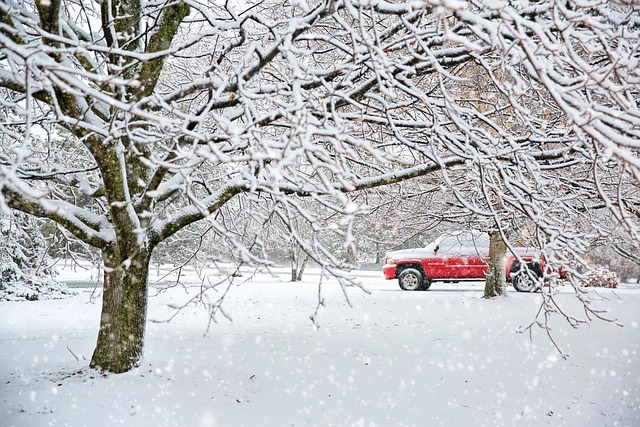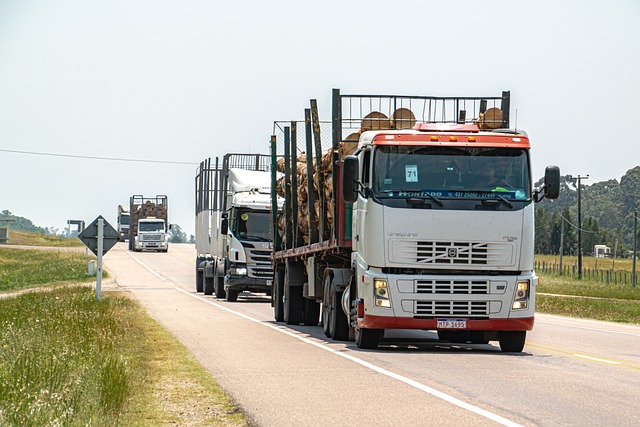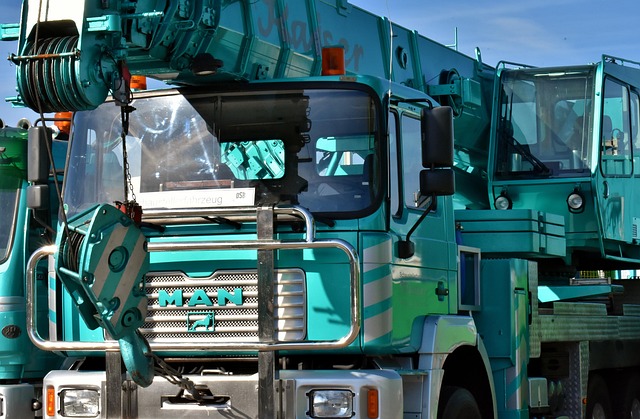Small fleet damage policies offer tailored insurance solutions for truck companies, addressing wear and tear, mechanical issues, and cargo accidents with comprehensive coverage. However, these policies have exclusions for natural disasters, terrorism, poor maintenance, and driver error, requiring businesses to understand these limitations. By balancing cost and coverage, evaluating vehicle needs, researching providers, and adopting proactive risk mitigation strategies like regular maintenance, detailed records, and driver training, companies can effectively protect their fleets with small fleet damage policies.
In today’s unpredictable landscape, safeguarding your truck fleet against unexpected damage is paramount. This comprehensive guide explores leveraging insurance tools tailored for small fleets, offering vital protection against potential losses. We delve into the intricacies of understanding specific coverage, identifying exclusions, and customizing insurance plans to meet unique needs. Additionally, discover strategies for risk mitigation and claims prevention, ensuring your fleet’s resilience against unforeseen circumstances. By implementing these insights, truck owners can navigate the road ahead with confidence, knowing their assets are protected by robust small fleet damage policies.
Understanding Small Fleet Damage Policies: What They Cover and Exclusions

Small fleet damage policies are tailored to cover the unique risks faced by businesses operating multiple trucks. Unlike standard insurance plans, these policies recognize that smaller fleets often face specific challenges, such as wear and tear from frequent usage, mechanical issues in diverse driving conditions, and potential accidents involving cargo or other vehicles on the road. As a result, they offer comprehensive coverage for damage to both vehicles and cargo.
However, it’s crucial to understand the exclusions within these policies. Common exclusions may include damage caused by natural disasters, acts of terrorism, or intentional acts of vandalism. Additionally, certain types of mechanical failures, like those stemming from poor maintenance or driver error, might not be covered. Knowing these limitations ensures that businesses can make informed decisions when choosing their small fleet damage policy, maximizing protection while understanding the gaps in coverage.
Benefits of Customized Insurance for Truck Owners

For truck owners, managing risk and potential losses is a significant concern, especially with the financial implications of unexpected damage. Customized insurance solutions tailored for the unique needs of truck owners offer several advantages. These policies, often referred to as small fleet damage policies, provide comprehensive coverage, ensuring that owners are protected against various perils, from accidental collisions to natural disasters and vandalism.
By opting for a customized policy, truck operators can benefit from flexible terms and rates, allowing them to adapt their coverage to the specific risks they face. This personalized approach enables business owners to safeguard their investments, maintain operational continuity, and focus on growth without the constant worry of potential financial setbacks due to unforeseen events.
How to Choose the Right Coverage for Your Fleet

When selecting insurance for your truck fleet, it’s crucial to strike a balance between comprehensive coverage and cost-effectiveness. Start by assessing the specific needs of your operation. Consider factors like vehicle type, usage patterns (local vs. long-haul), and the nature of the cargo transported. Small fleet damage policies often cater to these nuances, offering tailored solutions.
Research different insurance providers and their offerings. Compare policies based on deductibles, coverage limits, and exclusions. Opt for a provider with a solid reputation in the trucking industry. Additionally, look into add-on endorsements that can enhance your coverage, such as specific protection for cargo or roadside assistance services, ensuring you’re adequately protected against unexpected truck damage.
Strategies for Mitigating Risks and Claims Prevention

To mitigate risks and prevent claims, businesses managing small fleets must implement proactive strategies. Regular vehicle maintenance is a cornerstone of this approach. Scheduling routine checks and servicing can identify potential issues before they escalate into costly repairs or accidents. Keeping records of maintenance activities not only helps in risk management but also serves as valuable evidence in insurance claims.
Additionally, driver training plays a crucial role. Educating drivers on defensive driving techniques, safety protocols, and vehicle handling can significantly reduce the likelihood of damage. Encouraging safe driving practices and fostering a culture of accountability among drivers can act as a powerful deterrent against unexpected truck damage. Opting for comprehensive small fleet damage policies also offers added protection by covering a wide range of risks beyond traditional liability, thereby ensuring businesses are better equipped to manage unforeseen incidents.
When it comes to protecting your trucking business, understanding the intricacies of small fleet damage policies is key. By leveraging customized insurance solutions, you can safeguard your investment from unexpected damages and navigate potential risks effectively. Through strategic coverage choices and risk mitigation techniques, owners can minimize financial losses and ensure their fleet’s longevity. Remember, the right insurance plan tailored to your specific needs is a powerful tool in preventing claims and fostering a prosperous trucking operation.
